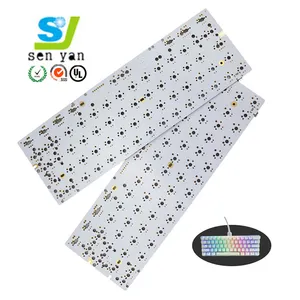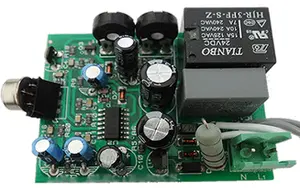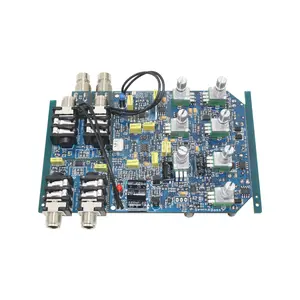Understanding PCB Manufacturing
PCB manufacturing is a sophisticated process that involves the creation of printed circuit boards (PCBs) used to support and connect electronic components. The industry offers a plethora of options, including single-sided, double-sided, or multi-layered boards. Materials commonly used in these boards include FR4 and aluminum, catering to various application requirements.
Types and Applications of PCBs
The versatility of PCB board manufacturers is evident in the range of PCB types they produce. From the basic single-layer PCBs to complex multi-layer PCBs, each serves a unique purpose. Applications span across numerous fields such as electronics, communication, and industrial equipment. The choice of PCB often depends on the specific requirements of the electronic device it is intended for.
Features of PCBs
A key feature of PCBs is their design complexity, which can vary significantly. Some boards are straightforward, while others are highly complex, involving intricate circuit board manufacturing processes. Surface finishes such as HASL, ENIG, or lead-free HASL are applied to protect the copper from oxidation and to ensure solderability.
Materials and Advantages
The primary material used in PCB board fabrication is FR4, a composite of epoxy laminate and woven fiberglass, known for its strength and moisture resistance. Aluminum PCBs, on the other hand, are sought after for their heat dissipation properties, making them ideal for high-power applications. The advantages of using PCBs are numerous, including compact size, ease of diagnostics, and cost-effectiveness in mass production.
PCB Assembly and Production
PCB assembly is a critical phase where electronic components are mounted onto the PCB to create a functional printed circuit assembly (PCA). PCB board assembly and assembly of printed circuit boards are services offered by manufacturers that involve surface-mount technology (SMT), through-hole technology (THT), or mixed-assembly processes to cater to different design complexities and component types.
Choosing the Right PCB Manufacturer
Selecting the appropriate pcb fabrication manufacturer is crucial for ensuring that the final product meets the required specifications and performance standards. Manufacturers may offer services ranging from prototype to full-scale pcb board production, with some specializing in electronic circuit board assembly. It is important to choose a manufacturer with the capability to handle the specific needs of your project.










































 浙公网安备 33010002000092号
浙公网安备 33010002000092号 浙B2-20120091-4
浙B2-20120091-4